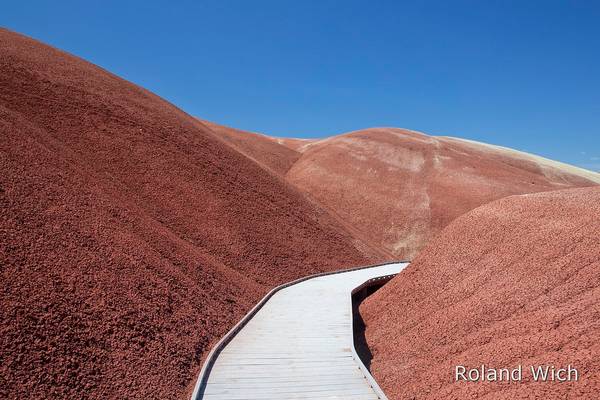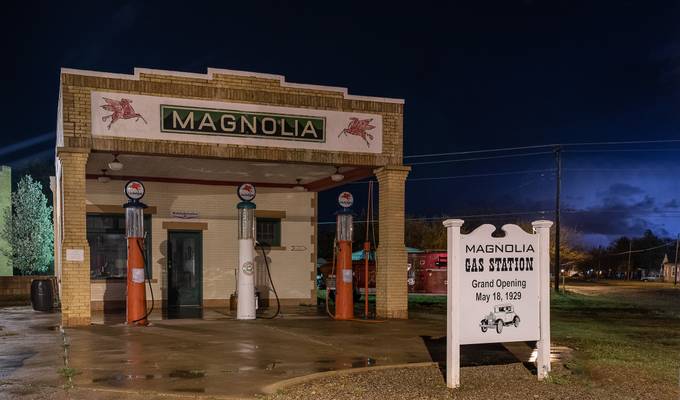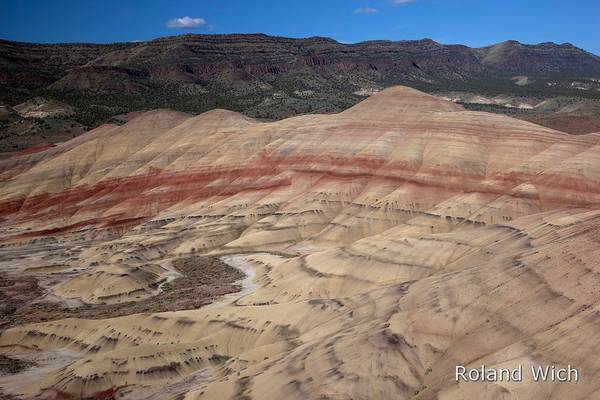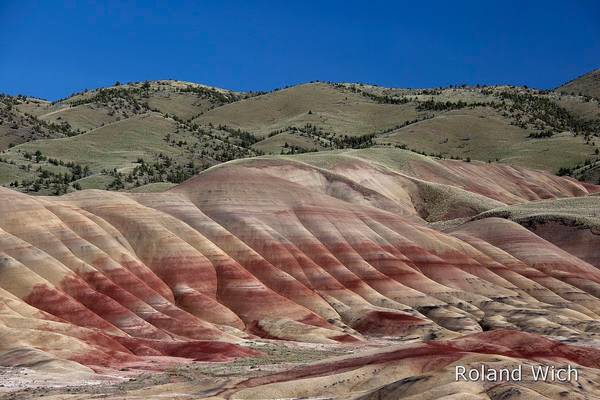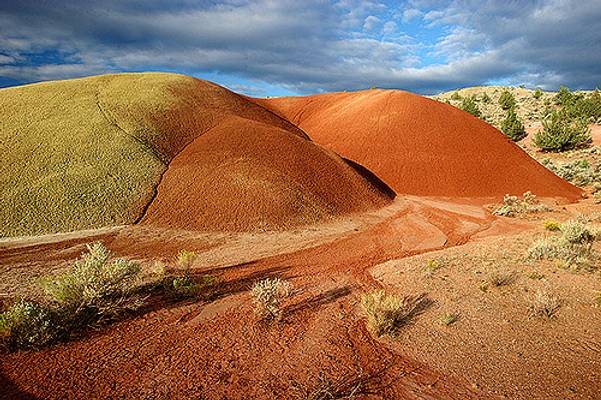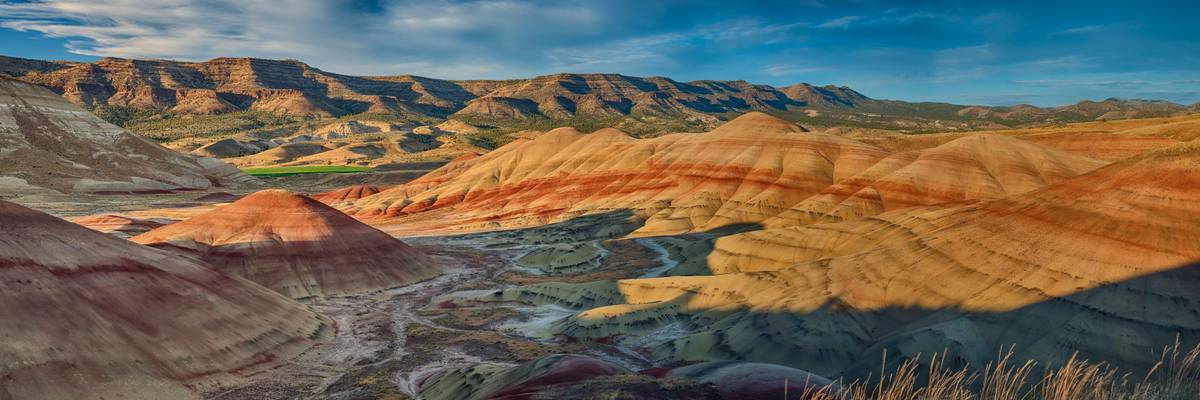
Wheeler County

by Sandeep Thomas
- William Morris Hunt.
| facebook | 500px | ferpectshotz |
After our brief but great camping trip at Palouse State Park we packed our gear and headed back to Bend, Oregon. Once settled in to the hotel we had a quick late lunch and headed back to Painted hills location at John Day Fossil Beds National Monument. Now this is a must visit location if you are ever in the state of Oregon. The array of vivid colors in this location is nothing short of stunning and there are a bunch of hikes to do that will take you to various beautiful viewpoints.
This was our first foray into the desert regions of Oregon and we thoroughly enjoyed it. The drive to the location is long and pretty much deserted but the road does get a bit rough at the end of the journey. We first did the Painted hills overlook trail, from where which I made this Panorama shot. We also enjoyed the Carroll Rime Trail which gave fantastic 360 degree view of the colorful hills.
Thanks for visiting, Hope everyone likes it..
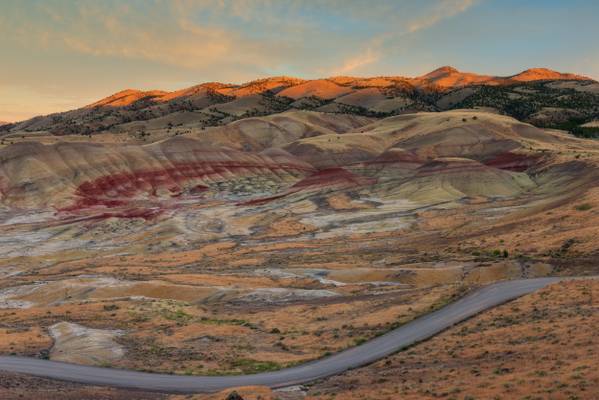
by Sandeep Thomas
- Alfred Eisenstaedt.
| facebook | 500px | ferpectshotz |
This is one of my absolute favorite quotes about photography especially considering some of the work done my Mr. Eisenstaedt. While his photojournalistic work is instantly recognized all over the world I am a big fan of some of the nature shots that was included in his LIFE picture collection.
This shot was made at Painted Hills unit of the John Day Fossil Beds National Monument, located in central Oregon. This was taken during our first trip to Oregon and nearly spending 7 days on the western side of the state it takes a bit of an effort to even believe that state has a desert side with very little rainfall. The day we visited was kind of a perfect day to see the park, there was a vivd blue sky awith some wispy clouds. The sky being blue is important here as an overcast day can really kill the colors on the hills. As sunset came around we got some nice pastel colors on the clouds and the hill tops. This one brings back a lot of great memories.
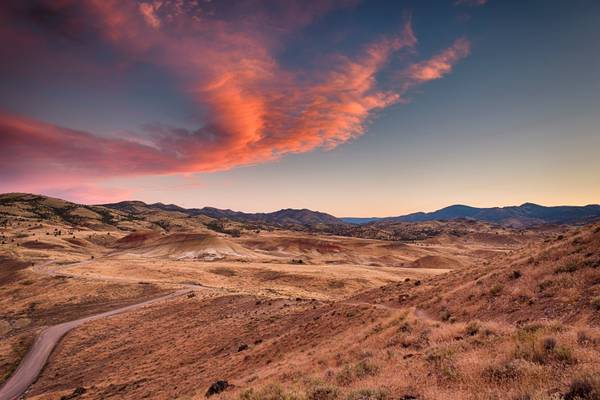
by Sandeep Thomas
- Confucius.
| facebook | 500px | ferpectshotz |
It’s been a long time since we travelled anywhere and I am fast running out of shots to post and I am feeling that itch to get out of home again. Thankfully Thanks giving holidays are up on us and we are heading out to Arizona for a quick trip. For the time being I will have to settle for some shots from out summer road trip. This one is of the famous painted Hills of John Day Fossil beds National monument. We encountered a spectacular sunset here with clouds and the rolling hills creating an amazingly vivid View in front of us.
I went a bit crazy here taking a lot of shots in various compositions. I like how the clouds form a leading line in this shot and how the sky replicated the fantastic vivid hues of the painted hills that day. If you are ever in this location pleas take your time to visit and enjoy this beautiful treasure of a location, believe me it’s worth it. Thanks for visiting have a happy Monday.
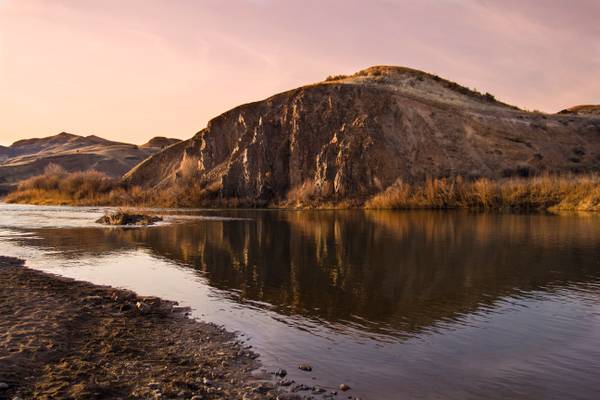
by Bonnie Moreland
I had it in my mind that John Day must have been some type of adventurer or explorer or naturalist, since he had a town, a river, and a National Monument named after him. Here is the story of John Day.
John Day came to Oregon in 1812 as part of an overland expedition to the new Pacific Fur Company post in Astoria. The once large party split up into many small groups before reaching the Oregon Territory. While camped where the mouth of the Man-nah River meets the Columbia River, John Day and Ramsay Crooks were robbed of all their belongings, including their clothing. Luckily they were rescued by a party of trappers also headed to Astoria. John Day became well known at the trading post secondary to his misadventure. Whenever others would pass the spot of the incident, they would point out where he had been robbed. Thus the Man-nah river slowly became known as the John Day River. John Day never came to the National Monument areas that now bear his name. It was Thomas Condon who named this area the John Day Fossil Beds because of he river's role as a landmark and its importance in eroding and exposing the fossil bearing rock layers.
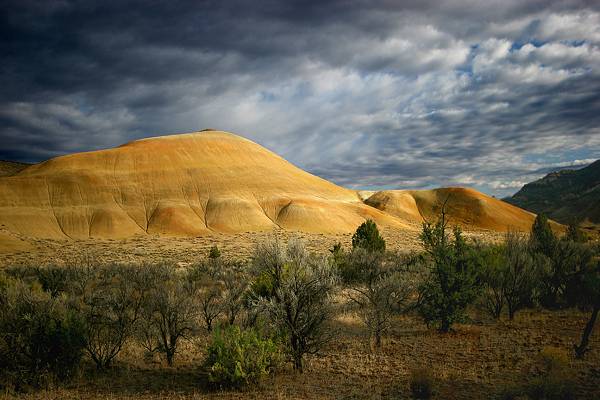
September morning at Painted Hills when the skies began to get overcast, a ray of light illuminated this yellow hill, I wish I could get better...
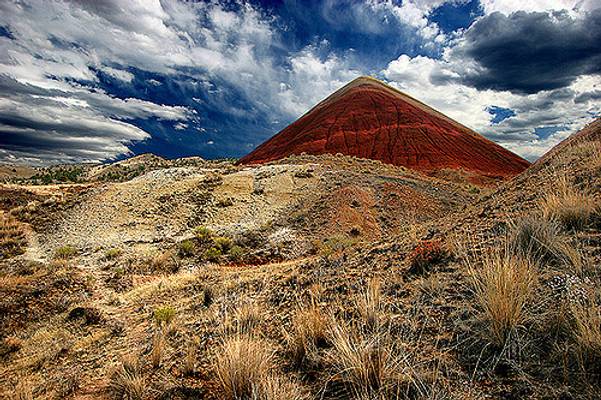
This one is heavily processed, the sun was elusive for the rest of the afternoon, and the clouds moving very slowly, I waited 30 minutes, but even...
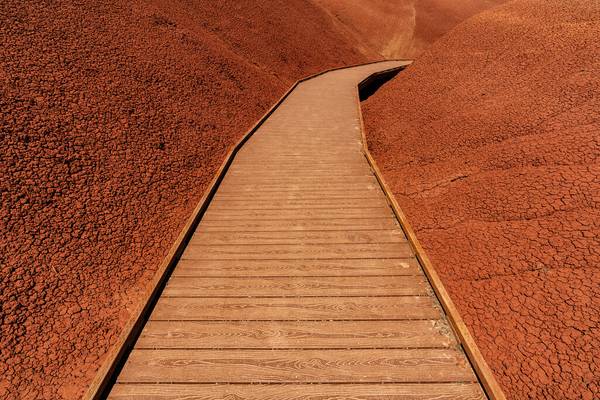
Walkway at Painted Cove trail, John Day Fossil Beds National Monument, Oregon, USA.
It was an amazing experience looking at these massive hills...
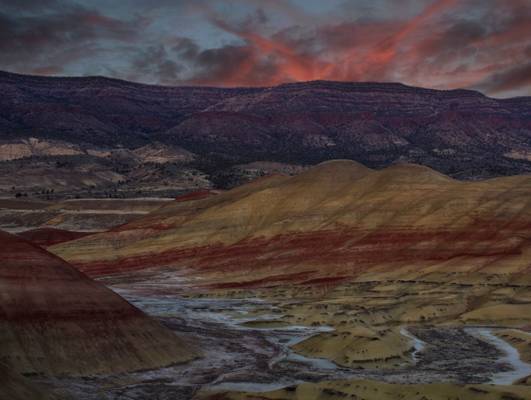
by Bonnie Moreland
John Day Fossil Beds National Monument is a U.S. national monument. Located within the John Day River basin and managed by the National Park Service, the park is known for its well-preserved layers of fossil plants and mammals.
The monument consists of three geographically separate units: Sheep Rock, Painted Hills, and Clarno. The Painted Hills Unit, which lies about halfway between the other two, covers 3,132 acres (1,267 ha). It is situated about 9 miles (14 km) northwest of Mitchell along Burnt Ranch Road,
The yellows, golds, blacks, and reds of the Painted Hills are beautiful at all times of the day, but are best lit for photography in the late afternoon. Changing light and moisture levels drastically affect the tones and hues visible in the hills. The seasons can also change the look of the Painted Hills radically. Spring often brings yellow wildflowers that grow in open areas and sometime even in the ripples of the hills. Winter can blanket the hills in a white coat, concealing the vibrant hues until the snow melts, revealing interspersed stripes of gold and red.
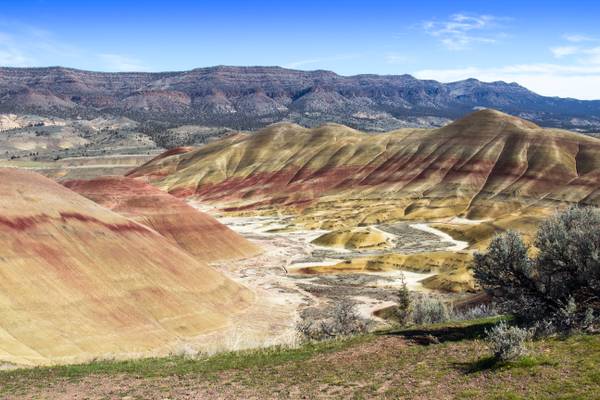
by Bonnie Moreland
The colors of this area will change with the position of the sun, last rainfall, temperature etc. These photos were taken after rainfall the night before.
Painted Hills, is one of the three units of the John Day Fossil Beds National Monument, located in Wheeler County, Oregon. It totals 3,132 acres (12.67 km2) and is located 9 miles (14 km) northwest of Mitchell, Oregon. The Painted Hills are listed as one of the Seven Wonders of Oregon. Painted Hills is named after the colorful layers of its hills corresponding to various geological eras, formed when the area was an ancient river floodplain.
The black soil is lignite that was vegetative matter that grew along the floodplain. The grey coloring is mudstone, siltstone, and shale. The red coloring is laterite soil that formed by floodplain deposits when the area was warm and humid
An abundance of fossil remains of early horses, camels, and rhinoceroses in the Painted Hills unit makes the area particularly important to vertebrate paleontologists.
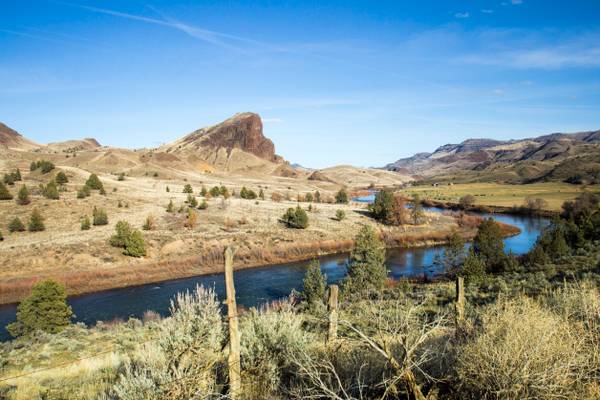
by Bonnie Moreland
If you are going to the Painted Hills in the John Day National Monument, you will take a turn off from Burnt Ranch Road. However, once you are done you can continue up Burnt Ranch Road for a ways through some nice farm and ranch areas and drive along side the John Day river. It was a very scenic drive on a beautiful day.
The John Day River is a tributary of the Columbia River, approximately 284 miles (457 km) long. Undammed along its entire length, the river is the third longest free-flowing river in the contiguous United States.
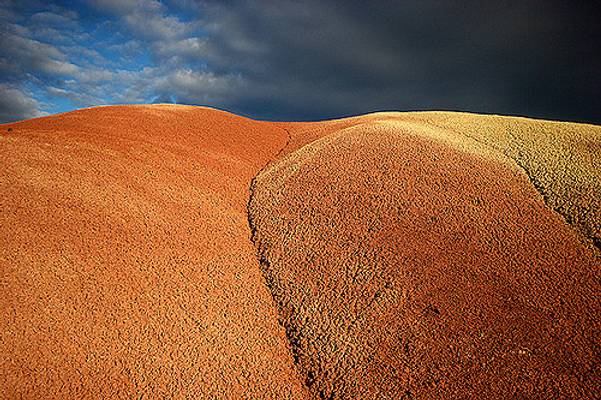
Painted Hills, Oregon, in the morning light, just a simple detail for today, more coming from this place, late afternoon is better for photgraphy in...
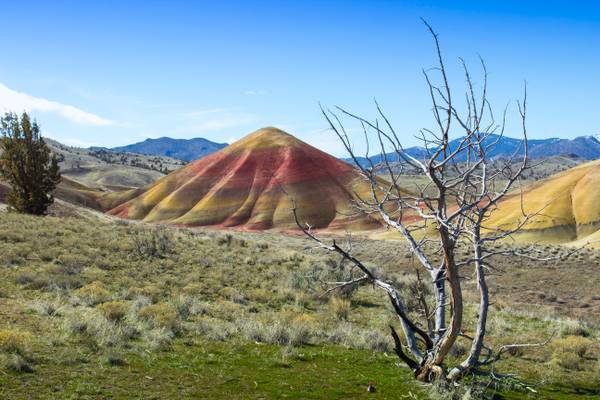
by Bonnie Moreland
The colors of this area will change with the position of the sun, last rainfall, temperature etc. These photos were taken after rainfall the night before.
Painted Hills, is one of the three units of the John Day Fossil Beds National Monument, located in Wheeler County, Oregon. It totals 3,132 acres (12.67 km2) and is located 9 miles (14 km) northwest of Mitchell, Oregon. The Painted Hills are listed as one of the Seven Wonders of Oregon. Painted Hills is named after the colorful layers of its hills corresponding to various geological eras, formed when the area was an ancient river floodplain.
The black soil is lignite that was vegetative matter that grew along the floodplain. The grey coloring is mudstone, siltstone, and shale. The red coloring is laterite soil that formed by floodplain deposits when the area was warm and humid
An abundance of fossil remains of early horses, camels, and rhinoceroses in the Painted Hills unit makes the area particularly important to vertebrate paleontologists.

by Sandeep Thomas
- Plautus.
| facebook | 500px | ferpectshotz |
Here is a shot of the beautiful sunset we witnessed at the Painted Hills National Monument. I was mostly worn-out by the time we reached here and was ready to call it a day. But my wife kept on trying to do the hike and dragged me up this hill, half way through the hike the sky started this multi color display and we just setup and started shooting.
It was amazing sight and the moon rise just added to the whole scene. Hope you all enjoy it as much as we did.
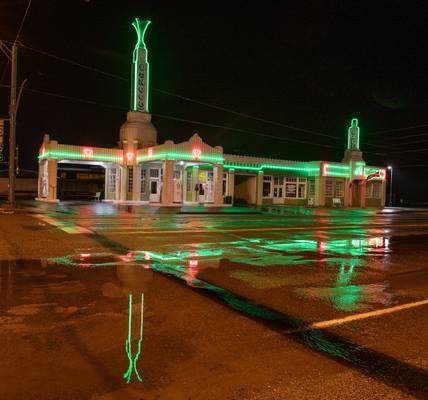
by Patrick Clancy
Ramones, from the Disney movie "Cars" was modeled after this tower
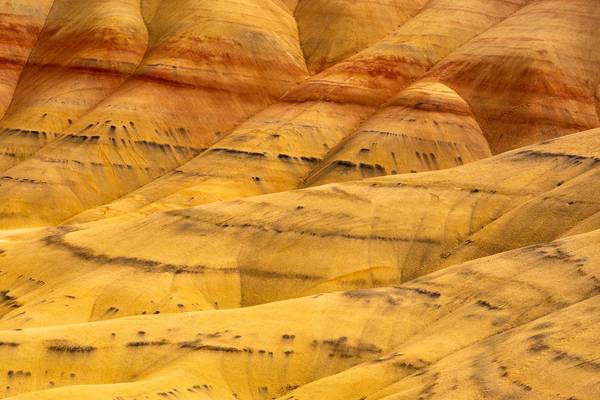
Isolated section of Painted Hills at John Day Fossil Beds National Monument, Oregon, USA.
This place doesn't need a separate title at all. I think...
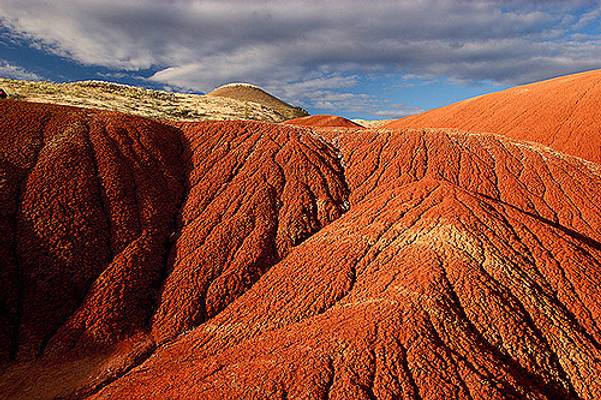
Early morning at Painted Hills National Monument, central Oregon, USA. The hillsides are textured by erosion, and have the same color as my computer...
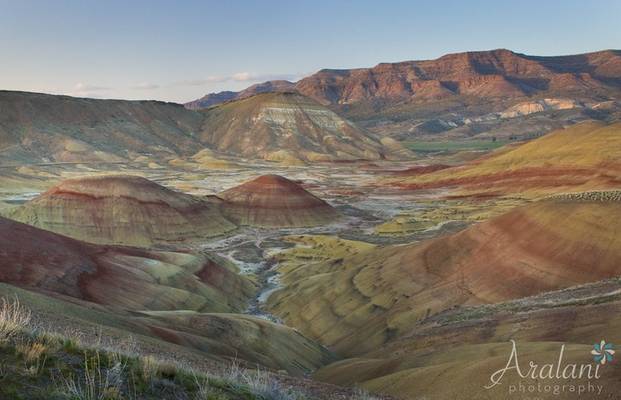
It isn't that I haven't been shooting. I just haven't been editing.
In putting my 2011 calendars together, I realized just how badly I'm behind...
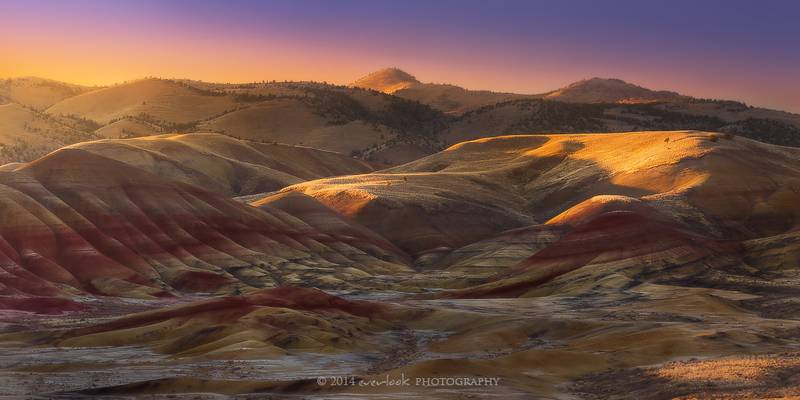
Painted Hills Oregon
I went for a different vantage point and focal length for this take of the overlook area of the painted hills. Light in the sky...
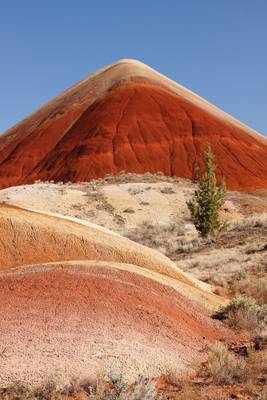
John Day Fossil Beds, Painted Hills Unit, Mitchell, Oregon
I could've just stayed at this hill the whole weekend I was in the Painted Hills...
Thanks to all Phoide contributors to Wheeler County!
Most notably Bonnie Moreland, Sandeep Thomas and Patrick Clancy.
